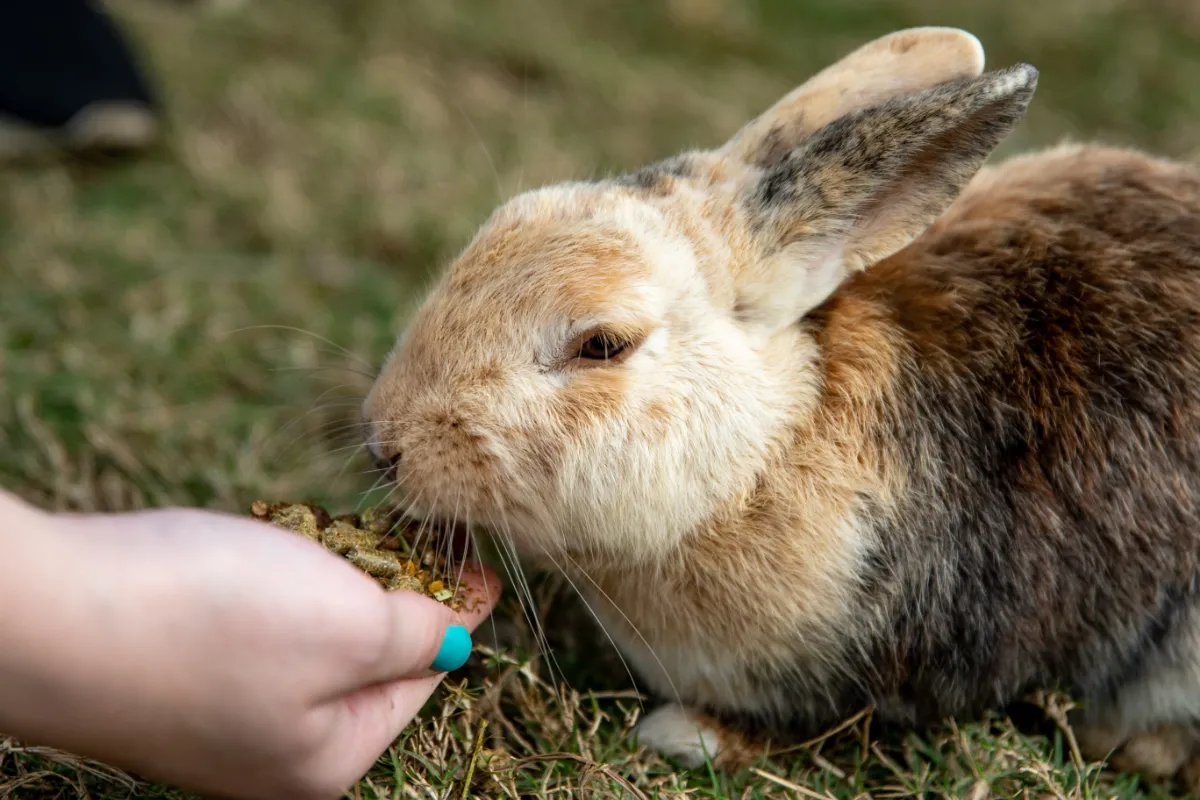Did you know that rabbits, just like humans, can suffer from heart attacks? It’s true! These small and adorable creatures are susceptible to cardiovascular issues that can put their health at risk.
In this article, we will explore the factors that influence rabbit heart attacks, how to recognize the symptoms, and most importantly, the preventive measures you can take to promote a healthy heart in your furry friend.
So let’s dive in and learn how to keep your rabbit’s heart happy and strong!
In This Article
Key Takeaways
- Common heart conditions in rabbits include congestive heart failure, heart murmurs, and arrhythmias.
- Factors that can influence rabbit heart attacks include stress, an imbalanced diet, genetic predisposition, loud noises, sudden environmental changes, and excessive heat.
- Symptoms of a rabbit heart attack include rapid or irregular heartbeat, lethargy, and difficulty breathing.
- Preventive measures for rabbit heart attacks include implementing dietary changes, providing a calm and quiet environment, implementing stress-reducing activities, and regular veterinary check-ups.
Understanding Rabbit Cardiovascular Health
Do you understand the importance of maintaining your rabbit’s cardiovascular health? As a responsible rabbit owner, it’s essential to be knowledgeable about rabbit heart disease and the common heart conditions that can affect these delicate creatures.
Rabbit heart disease, although not as prevalent as in other animals, can still occur and have serious consequences. Some of the common heart conditions seen in rabbits include congestive heart failure, heart murmurs, and arrhythmias. These conditions can lead to symptoms such as lethargy, difficulty breathing, and poor appetite.
Regular veterinary check-ups, a balanced diet, and exercise are crucial in preventing and managing these heart conditions. By taking proactive steps to ensure your rabbit’s cardiovascular health, you’re serving their well-being and providing them with a happy and fulfilling life.
Factors That Influence Rabbit Heart Attacks
You should be aware of several factors that can influence rabbit heart attacks, such as stress and diet. Understanding these risk factors for rabbit heart attacks is crucial in ensuring the well-being of these animals.
| Risk Factors | Description |
|---|---|
| Stress | Rabbits can experience stress from loud noises or sudden changes in their environment. Stress can increase their heart rate and blood pressure, leading to a higher risk of heart attacks. |
| Diet | An imbalanced diet, particularly one that is high in fat and low in fiber, can contribute to heart disease in rabbits. It is important to provide them with a well-balanced diet that includes a variety of fresh vegetables and high-quality hay. |
| Genetics | Some rabbits may have a genetic predisposition to heart disease. If there is a history of heart problems in their bloodline, they may be more susceptible to heart attacks. |
Recognizing the Symptoms of Rabbit Heart Attacks
If a rabbit experiences symptoms such as sudden weakness or difficulty breathing, it’s important to seek veterinary care immediately.
Recognizing the symptoms of a rabbit heart attack is crucial in order to provide timely treatment. Rabbit heart attacks can be caused by a variety of factors, including underlying heart conditions, stress, obesity, and poor diet.
When a heart attack occurs, the blood flow to the heart is disrupted, leading to symptoms such as rapid or irregular heartbeat, lethargy, and difficulty breathing.
Treatment for rabbit heart attacks typically involves stabilizing the rabbit’s condition, providing oxygen therapy, and administering medications to improve heart function. It’s essential to consult with a veterinarian who specializes in exotic animals to ensure the best care for your rabbit.
Preventive Measures for Rabbit Heart Attacks
To effectively prevent rabbit heart attacks, it’s crucial to implement dietary changes and regularly monitor their stress levels.
Rabbits are prone to heart attacks due to various causes, including obesity, a high-fat diet, and excessive stress. A healthy diet for rabbits should consist of unlimited fresh hay, a limited amount of pellets, and a variety of fresh vegetables. Avoid feeding them foods high in fat and sugar, as these can contribute to heart problems.
Additionally, monitoring their stress levels is essential. Provide them with a calm and quiet environment, away from loud noises and sudden disturbances. If you notice any signs of stress, such as restlessness or decreased appetite, consider implementing stress-reducing activities like providing hiding spots or engaging them in interactive play.
Regular veterinary check-ups are also crucial for detecting and addressing any potential heart issues early on. Remember, by taking proactive measures, you can help your rabbits lead a healthy and heart-attack-free life.
Promoting Heart Health in Rabbits
Ensure your rabbits’ heart health by providing them with a balanced diet and regular exercise. The importance of exercise in rabbit heart health cannot be emphasized enough. Just like humans, rabbits benefit from physical activity to keep their hearts strong and their bodies healthy. Additionally, a nutritious diet plays a crucial role in promoting rabbit heart health. Here are some diet tips to consider:
| Exercise Tips | Diet Tips |
|---|---|
| Provide ample space for | Offer a balanced diet that |
| your rabbits to hop, | includes fresh hay, |
| run, and explore. | vegetables, and a limited |
| Encourage daily play | amount of pellets. Avoid |
| sessions with toys and | excessive treats and sugary |
| tunnels. | foods. |
Frequently Asked Questions
Can Rabbits Die From Heart Attacks?
Rabbits can die suddenly, and heart attacks are one possible cause. Like humans, rabbits can experience stress, which can lead to heart problems. It’s important to provide a low-stress environment for your rabbit’s well-being.
How Common Are Heart Attacks in Rabbits?
“Are heart attacks common in rabbits? Let’s explore the importance of rabbit heart health and managing their cardiovascular well-being. It’s crucial to understand how to keep your furry friend’s heart strong and healthy.”
Are Certain Rabbit Breeds More Prone to Heart Attacks?
Certain rabbit breeds may be more prone to heart attacks due to genetic factors. Additionally, lifestyle factors such as diet and exercise can also contribute to the likelihood of a heart attack in rabbits.
Can Stress Trigger a Heart Attack in Rabbits?
Stress in rabbits can have a significant impact on their health, potentially even triggering a heart attack. It’s important to minimize stressors in their environment and provide a calm, safe space for them to thrive.
Are There Any Warning Signs That Indicate a Rabbit May Be at Risk of a Heart Attack?
If you’re concerned about your rabbit’s risk of a heart attack, it’s important to look out for warning signs such as difficulty breathing, sudden weakness, or loss of appetite. Taking preventive measures, like providing a healthy diet and regular exercise, can also help reduce the risk.
Conclusion
Congratulations! You have now become an expert on rabbit heart attacks. Armed with the knowledge of their cardiovascular health, the factors that influence heart attacks, and the symptoms to watch out for, you’re well-equipped to prevent these furry creatures from falling victim to such a fate.
Remember, a healthy heart leads to a hoppy life for rabbits, so let’s keep those little tickers ticking and their floppy ears perked up with joy!





